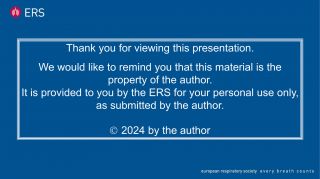21 March, 2024 | Online
17:00-18:00 CET
Chair: Dr Arnaud Mailleux (Paris, France)
Speaker: Dr Bernard Mari (Valbonne, France)
Fees: Free for ERS members / €10 for non-members
Find out more about becoming a member
Transcriptomic single cell approaches have emerged as powerful tools in understanding complex biological systems. These approaches enable the investigation of individual cells, including single nuclei, providing unparalleled insights into cellular diversity.
By capturing the transcriptional and epigenetic landscape of specific cell types within the lung, these techniques shed light on the molecular mechanisms underlying disease pathogenesis and progression. To harness the full potential of single cell approaches, collaboration and dialogue with bioinformaticians are vital.
The fusion of computational and biological knowledge is instrumental in unlocking the comprehensive understanding of lung diseases through single cell approaches. Hence, these methods facilitate the identification of dysregulated genes, pathways, and epigenetic modifications associated with lung diseases, aiding in the discovery of potential therapeutic targets.
Educational aims
- To understand the significance, transformative impact and utility of single cell approaches in studying complex biological systems. By highlighting their relevance in the context of lung disease characterisation, this webinar could inspire clinicians, trainees and researchers to explore and utilise these cutting-edge techniques in their own scientific pursuits.
- To emphasise the importance of interdisciplinary collaboration between basic translational scientists, clinicians and bioinformaticians in order to effectively harness the power of single cell approaches for advancing our understanding of lung diseases.
- To raise awareness about the untapped potential of existing single cell datasets; encouraging clinicians, researchers and trainees to explore and mine these resources to extract valuable insights and generate new hypotheses.
Topics
- Transcriptome
- Single cell methods
- Interstitial lung diseases
Target audience
- Clinicians
- Trainees
- Basic and translational scientists
- Bioinformaticians
Format
This webinar will include a workshop with interactive quizzes, Q&A with audience, presentation of seminal papers and introduction to analysis workflows.
Learning outcomes
After following this webinar, participants should be able to:
- Understand the relevance of single-cell approaches in disease characterisation.
- Learn which steps are required to undertake and assess these single cell omic methodologies.
CME credit
An application for accreditation of this webinar has been made to the European Board for Accreditation in Pneumology (EBAP) for 1 CME credit per 1-hour attendance. If accredited, the CME credit will be granted upon attendance of at least 60 minutes during the live webinar only.
What is a webinar?
A webinar closely simulates a lecture-based teaching experience. The speaker can interact with the audience, just as in a classroom setting. During the webinar, you will be asked to share your opinion on issues related to the topic using interactive polls.
All participants will be able to hear the lecturer and see the slides throughout the presentation. As a participant you will be able to pose questions or discuss ideas with the other participants via the text chat facility and the speaker will respond to the questions via the microphone.
Login guidelines
More information will be communicated in due course.
Please log in to the webinar 20 minutes before it is scheduled to commence. If you have any technical difficulties whilst trying to log in or during the session please contact e-learning@ersnet.org.
Check Central European Time.
To achieve the best quality, we recommend to avoid downloading anything from the internet during your connection to the lecture and stopping all other programmes.
Please also ensure that your audio settings are not set to mute and adjust the volume to a comfortable level.

